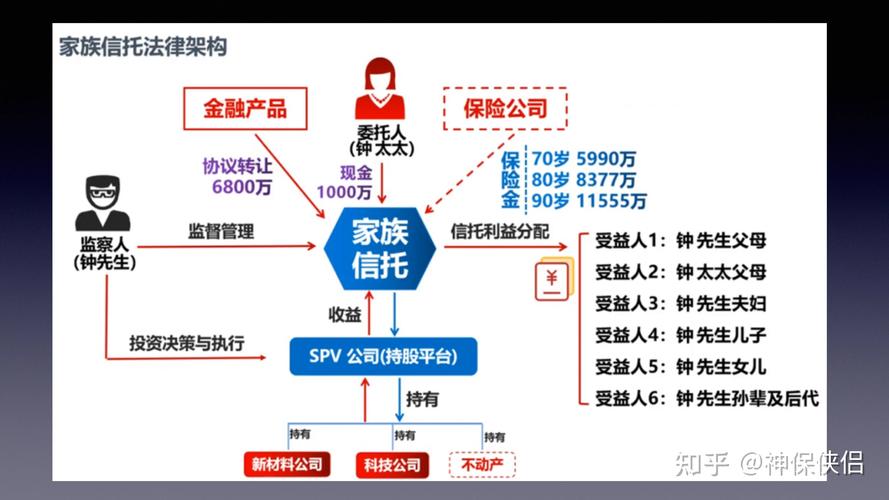Title: Understanding ThirdParty Online Financial Trusts: Benefits, Risks, and Guidelines
In today's digital era, thirdparty online financial trusts have emerged as a popular option for individuals seeking to manage and grow their wealth. These trusts offer a range of benefits, including convenience, diversification, and professional management. However, they also come with their own set of risks and considerations. In this guide, we will explore the concept of thirdparty online financial trusts, their advantages and disadvantages, and provide guidelines for making informed decisions when utilizing these services.
What are ThirdParty Online Financial Trusts?
Thirdparty online financial trusts, also known as online investment platforms or roboadvisors, are digital platforms that provide automated investment management services. These platforms typically use algorithms and computer models to create and manage investment portfolios for their clients. They offer a convenient and costeffective way for individuals to access professional investment management without the need for traditional financial advisors.
Benefits of ThirdParty Online Financial Trusts
1.
Convenience
: Thirdparty online financial trusts allow investors to access their accounts and monitor their investments conveniently through web or mobile applications. This accessibility enables investors to make informed decisions and manage their portfolios anytime, anywhere.
2.
Diversification
: These platforms often offer a range of investment options, including stocks, bonds, ETFs, and mutual funds. By diversifying their investments across various asset classes, investors can reduce the overall risk of their portfolios and potentially enhance returns.
3.
CostEffectiveness
: Thirdparty online financial trusts typically charge lower fees compared to traditional financial advisors. This fee structure can result in cost savings for investors, especially those with smaller investment amounts.
4.
Professional Management
: Many thirdparty online financial trusts employ experienced investment professionals who design and manage investment portfolios based on proven strategies and market trends. This professional expertise can help investors achieve their financial goals more effectively.
Risks and Considerations

1.
Lack of Personalization
: While thirdparty online financial trusts offer automated investment management, they may lack the personalization and individualized advice provided by traditional financial advisors. Investors with unique financial situations or goals may find these platforms less suitable.
2.
Market Volatility
: Like any investment, portfolios managed by thirdparty online financial trusts are subject to market fluctuations and volatility. While diversification can help mitigate risk, investors should be prepared for the possibility of losses during market downturns.
3.
Security Concerns
: Entrusting personal and financial information to online platforms raises concerns about data security and privacy. Investors should carefully evaluate the security measures implemented by thirdparty online financial trusts to protect their sensitive information from cyber threats.
4.
Limited Control
: Investors relinquish some degree of control over their investment decisions when using thirdparty online financial trusts. While this may be acceptable for some investors, others may prefer more handson involvement in managing their portfolios.
Guidelines for Using ThirdParty Online Financial Trusts
1.
Research and Comparison
: Before selecting a thirdparty online financial trust, investors should conduct thorough research and compare different platforms based on factors such as fees, investment options, performance track record, and user reviews.
2.
Understand Fees and Charges
: Investors should carefully review the fee structure of thirdparty online financial trusts, including management fees, transaction fees, and any other charges. Understanding these fees is essential for evaluating the overall costeffectiveness of the platform.
3.
Assess Risk Tolerance and Investment Goals
: Investors should assess their risk tolerance and investment goals before using a thirdparty online financial trust. This selfassessment can help investors choose a platform that aligns with their financial objectives and comfort level with risk.
4.
Monitor and Review Regularly
: While thirdparty online financial trusts offer automated investment management, investors should regularly monitor and review their portfolios to ensure they remain aligned with their objectives and risk tolerance. Periodic rebalancing may be necessary to maintain optimal asset allocation.
5.
Stay Informed
: Keeping abreast of market developments and economic trends is essential for making informed investment decisions. Investors should stay informed through reputable financial news sources and educational resources provided by thirdparty online financial trusts.
Conclusion
Thirdparty online financial trusts offer a convenient and costeffective way for individuals to invest and manage their wealth. By understanding the benefits, risks, and guidelines associated with these platforms, investors can make informed decisions that align with their financial goals and preferences. Whether seeking diversification, professional management, or accessibility, thirdparty online financial trusts can be valuable tools for building and preserving wealth in today's digital landscape.
Remember, while these platforms can provide valuable assistance, it's always wise to consult with a financial advisor or professional before making significant investment decisions.

